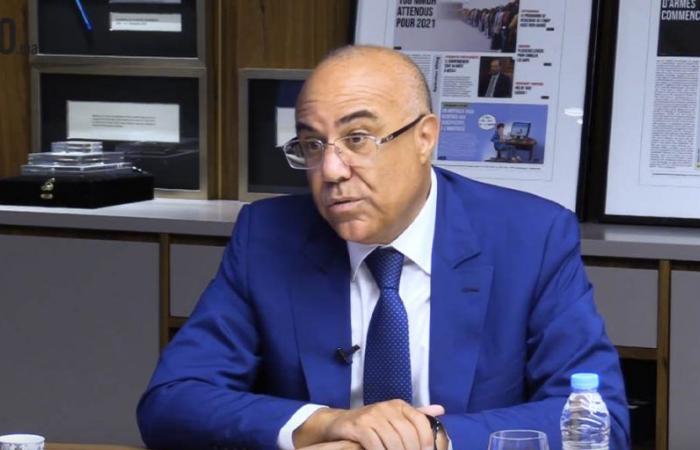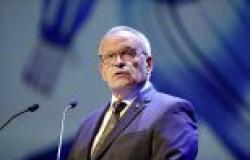Raising Moroccan universities among the most prestigious in the world is the ambition of the government, which has embarked on an unprecedented reform to achieve this. Abdellatif Miraoui, Minister of Higher Education, Scientific Research and Innovation, is firmly committed to improving the quality provided. A competitive asset that will distinguish the winners in an increasingly demanding job market.
What priority does the Ministry of Higher Education give to the internationalization of diplomas in its strategy for the development of education in Morocco?
The internationalization of diplomas is at the heart of the priorities of the National Plan to accelerate the transformation of the ecosystem of higher education, scientific research and innovation (ESRI PACT 2030).
This plan aims to strengthen the visibility and international influence of national universities, in line with the ambition to establish Morocco as a continental hub for training and scientific research. International cooperation, under the prism of the ESRI-2030 Pact, is intended to be an essential lever for the successful deployment of priority projects for educational reform and that of boosting the ecosystem of scientific research and innovation.
Strengthening student mobility programs, double degrees and the integration of international standards are all essential levers to substantially improve the quality of education and to prepare Moroccan students for a globalized world.
How do academic partnerships with other international institutions contribute to improving the quality of teaching and research in Morocco?
Academic collaborations with international institutions are, obviously, essential to raise the quality of teaching and research in Morocco. These collaborations take several forms, including bilateral exchange programs, which allow students and teachers to immerse themselves in other academic systems, thus strengthening their skills and broadening their academic and scientific horizons.
Joint thesis supervision, in alignment with the provisions agreed within the framework of the training program for new generation doctoral student-monitors, makes scientific cooperation a guarantor of the quality of research and a lever for international recognition of doctoral research work. Double-degree programs offer students, especially Master’s degree students, the opportunity to obtain two degrees, recognized both in Morocco and in a partner country, thus preparing them for promising international careers.
Finally, interinstitutional agreements within the framework of the Erasmus+ program facilitate the mobility of students, teachers and researchers, while creating solid links with European institutions. These partnerships enrich educational content, modernize academic practices and open up prospects for innovative cooperation in various fields of research.
What are the criteria for joining double degree and international academic mobility programs, such as Erasmus+?
To benefit from mobility within the framework of the double degree and international academic mobility, such as Erasmus+, students must have a good academic background, accompanied by mastery of foreign languages, in particular English or the language of the host country. Students must also demonstrate strong motivation to continue their studies abroad, with a well-written and structured cover letter, a quality CV demonstrating a rich and attractive academic and extra-academic career, etc. In some cases, they must also provide letters of recommendation from their teachers to attest to their merit. Please note that priority is often given to students applying for mobility programs for the first time.
Are there specific financial support mechanisms for Moroccan students wishing to enroll in double degree or mobility programs?
Obviously, several financial support mechanisms exist to support Moroccan students in double degree or mobility programs. Among these flagship mechanisms, it is worth mentioning the Erasmus+ grants, which cover part of the living and travel costs for mobility in Europe. In addition, certain Moroccan universities sometimes contribute to the cost of plane tickets, thus facilitating students’ access to international mobility programs. For their part, some partner universities offer scholarships that partially or fully cover tuition fees, and in some cases, they also provide accommodation. In several situations, mobility is entirely the responsibility of the students.
How does the internationalization of diplomas prepare Moroccan students to globally face competition in the job market?
Internationalization allows Moroccan students to enrich their academic experience, but also their life experience, thus strengthening their resilience and their ability to adapt to multicultural environments. By obtaining internationally recognized diplomas, our young people are able to broaden their employment prospects in a now globalized job market. In addition, international mobility allows them to develop a global professional network, acquire linguistic and intercultural skills, and become familiar with foreign work environments, all crucial assets in a world where competition for jobs is more and more intense.
Currently, what are the main areas concerned?
The fields concerned by the internationalization of degrees encompass a broad spectrum of specializations, covering science, technology, engineering, and medicine, as well as the humanities and social sciences, in particular law, economics and management .
What are the main difficulties faced by Moroccan universities in establishing international academic partnerships and developing double degree programs?
Moroccan universities sometimes face constraints in establishing international academic partnerships and developing double degree programs. Among these constraints, we should first mention the question of mutual recognition of diplomas, because each country has its own criteria and accreditation systems.
In addition, non-compliance of syllabi between Moroccan institutions and their international partners can sometimes slow down the collaboration process and require significant adjustments in study programs. In order to reduce these inequalities, the ESRSI 2030 Pact has established credit systems that capitalize and standardize learning outcomes while facilitating the alignment of national programs with their international counterparts.
The language problem also constitutes a challenge, particularly with non-French-speaking countries, because higher education in Morocco is mainly provided in French. This may limit opportunities for partnerships with English-speaking or non-European countries.
Financing also represents a challenge, and not the least. However, the integration in 2023 of the teaching of foreign languages, in particular French and English, as compulsory modules generalized to all levels and to all higher education diplomas in the bachelor’s, master’s and doctoral cycles , will undoubtedly have a positive impact on the ability of our laureates to integrate more easily into international training courses, particularly English-speaking ones. Although programs like Erasmus+ cover certain mobilities, financing non-Erasmus mobilities remains a major obstacle, because national funds to support this type of project are relatively limited.
Furthermore, Moroccan universities have long remained confined to cooperation links polarized towards Europe. Today, with the ESRI-2030 Pact, the dynamic of cooperation initiated with other continents should certainly contribute to strengthening the international partnerships of our universities.
Maryem Ouazzani / ECO Inspirations
whatsapp Receive recent economic news on your WhatsApp






